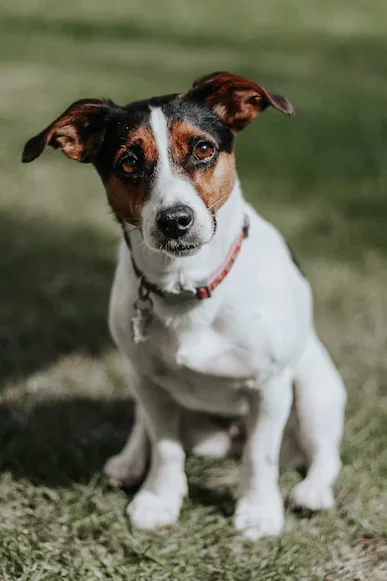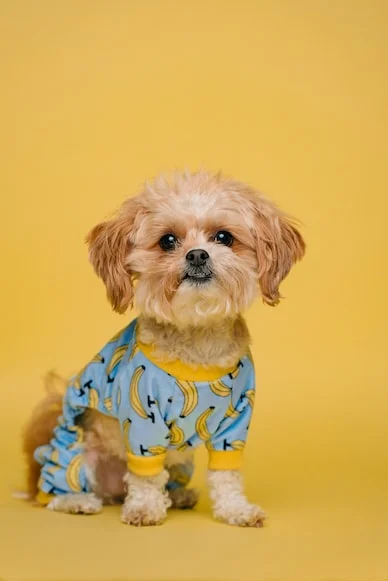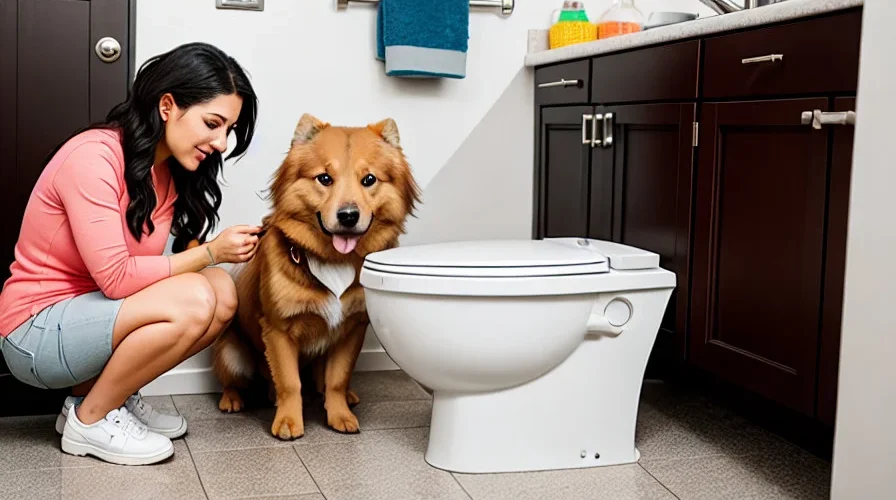Potty training is a crucial part of owning a dog, and while some breeds learn quickly, others may take a little longer. Dogs need to do what comes naturally to them to be happy and healthy.
We’ll examine the 16 breeds believed to be more challenging to housebreak in this extensive guide.
For you to effectively go through this obstacle, we’ll look into the causes of their challenges, provide professional advice, and share personal experiences.
This post attempts to offer helpful ideas and tips for a successful potty training journey, whether you’re a first-time dog owner or an experienced dog lover.
16 Breeds of the Hardest Dogs to Potty Train
This guide lists 16 dog breeds known for being the hardest dogs to potty train. Despite the challenges, it’s crucial to use positive reinforcement methods and maintain patience, sympathy, and kindness.
Each breed presents unique challenges and may require different approaches to achieve successful results. Remember to use patience, sympathy, and kindness when training your dog.
1. Dachshund
Dachshunds are a stubborn dog breed that can be challenging to train due to their scent-hound nature and neurotic prey drive. They are known for their singing and wandering abilities.
To effectively potty train a Dachshund, use positive reinforcement and consistency. These scent hounds are also known for their hunting abilities and can be defensive when pushed.
Due to their short legs and long bodies, they are more prone to accidents when standing up and in small spaces.
2. Beagle
Beagles are hounds with a one-track mind and a strong sense of smell, making them difficult to train.
They are stubborn and energetic, requiring a firm and experienced owner. Potty training can take up to a year due to their energy and constant movement.

Beagles have sensitive noses and a short attention span, making them difficult to housetrain. Their strong prey drive makes them often chase small animals, making hardest dogs to potty train.
Despite their curiosity, potty training can be challenging due to their strong-willed temperament.
3. Siberian Husky
The Siberian Husky is energetic by nature and difficult to control. With thick fur, grooming is challenging, and they prefer independence and free-spiritedness. They may resist strict potty training and prefer to explore on their own.
4. Chihuahua
Chihuahuas may be small in size, but they can be quite feisty during potty training. Their strong-willed personalities may lead to resistance and defiance when trying to establish a potty routine.
5. Jack Russell Terrier

Jack Russell Terriers are lively, bright, and intellectual dogs, but because of their continual energy and quick wits, they can be difficult to housebreak. Consider enrolling in a Jack Russell-specific online course to get around this.
If restrictions are not obeyed, these dogs can become aggressive and possessive.
6. Basset Hound
Due to their intense prey drive and tenacity, Basset Hounds are notoriously challenging to potty train. They can eventually get toilet trained, nevertheless, with continuous, gentle training.
Bassets are less focused on their work because of their fluffy ears and excellent sense of smell. It is difficult for them to stick to a rigid training schedule because of their laid-back attitude and lack of enthusiasm.
Even though they have a lovely appearance, Basset Hounds are necessary for effective potty training.
7. Afghan Hound
Due to their poor intelligence and propensity for being easily distracted, Afghan hounds are independent, playful, and high-energy dogs who want care.
They can also be hardest dogs to potty train. Despite having a beautiful coat and an elegant appearance, they are challenging to train because of their lengthy history and requirement for specific care.
Afghans are stunning, but to learn and keep their independence, they need patience and persistence.
8. Boxer: The Playful Clown
Boxers are known for their energetic and affectionate nature, but they do come with certain characteristics that can make potty training a bit more demanding.
Potty training Boxers can be demanding due to their energetic, strong-willed, affectionate, and sensitive nature.
While these traits contribute to their overall charm, they require a well-thought-out training strategy that factors in their unique characteristics.
With patience, consistency, and a deep understanding of their personality, successful potty training can be achieved for these delightful and spirited companions.
9. Shih Tzu
Shih Tzus are renowned for their obstinacy, and potty training might take up to 8 months. As a result of their diminutive size and short coats, they are extremely challenging to housebreak.

Because they were raised in China with limited human contact, they had a hard time adjusting to their new environment. Despite their sweetness and cuteness, they can be difficult to toilet train due to their small stature and sensitivity to the cold.
Shih Tzus are affectionate and loving dogs, but because of their need for company, they may be reluctant to be left alone when being trained, which could result in mishaps if they are not with their owners.
10. Bulldog
Due to their obstinate personalities and tremendous amounts of energy, English bulldogs are notoriously challenging to teach.
They are renowned for being strong-willed and uncompromising, despite their popularity.
Due to their relaxed attitude and determination, potty training is difficult and may require repeated reinforcement to establish good habits.
English bulldogs are a well-liked breed of dog as a pet, despite their intellect.
11. Weimaraner
Weimaraners are intelligent dogs with strong hunting instincts. Their curious nature might lead them to be more interested in exploring their surroundings than focusing on potty training that makes them hardest dogs to potty train.
12. Bichon Frise: The Sociable Charmer
Bichon Frises are sociable and charming, but they can also be a bit sensitive. Their feelings might be hurt by harsh training methods, so positive reinforcement is crucial.
13. English Bulldog: The Relaxed Companion
English Bulldogs are loyal and relaxed, but they might also be a tad lazy during potty training. Consistency and patience are key to achieving successful results with this breed.
14. Dalmatian: The Energetic Fireball
Dalmatians are energetic and playful, which can make them easily distracted during potty training sessions. Keeping their focus on the task at hand is essential.
15. Chinese Shar-Pei: The Stoic Guardian
Chinese Shar-Peis have a stoic and independent nature, which can make them resistant to following potty training commands. Earning their trust is crucial to successful training.
16. Maltese: The Elegant Aristocrat
Maltese dogs are elegant and dignified, but they can also be a bit stubborn during potty training. Establishing a routine early on is essential to avoiding accidents.
Conclusion
Potty training a challenging breed can be a daunting task, but with the right approach and a lot of patience, it’s entirely possible to achieve success in providing potty training to the hardest dogs to potty train.
Understanding the unique traits of each breed and tailoring your training methods accordingly will go a long way in overcoming this common hurdle. Remember, every dog is different, and what works for one may not work for another.
You can explore further information on RSPCA or ASPCA related to your pet.
Stay consistent, be positive, and most importantly, cherish the journey of bonding with your furry companion during the training process.
Explore more:
Dog foods and nutrition to keep your doggy healthy
Common dog health issues and care
Master the art of dog grooming with these hacks
What are the different types of dog breeds
FAQs
Q1: Can I potty train my hard-to-train breed without professional help?
Yes, you can potty train your dog on your own with patience, consistency, and positive reinforcement. However, professional assistance can be beneficial, especially for particularly challenging breeds.
Q2: How long does it take to potty train a difficult breed?
Potty training duration varies depending on the breed and individual dog. It can take anywhere from a few weeks to several months to achieve consistent success.
Q3: What are the best potty training methods for stubborn breeds?
Positive reinforcement, consistency, and setting a routine are essential for stubborn breeds. Rewarding desired behavior and ignoring accidents will help reinforce good habits.
Q4: Why does my hard-to-train dog keep having accidents indoors?
Accidents indoors can occur due to various reasons, such as insufficient potty breaks, anxiety, or unclear boundaries. Identifying the root cause will help address the issue effectively.
Q5: Can I use pee pads for potty training difficult breeds?
Pee pads can be a temporary solution, but it's best to transition to outdoor potty training eventually. Using pee pads for too long may create confusion for your dog.
Q6: Is crate training effective for difficult breeds?
Crate training can be an effective tool for potty training difficult breeds. Dogs instinctively avoid soiling their sleeping area, making the crate a valuable aid in potty training.
